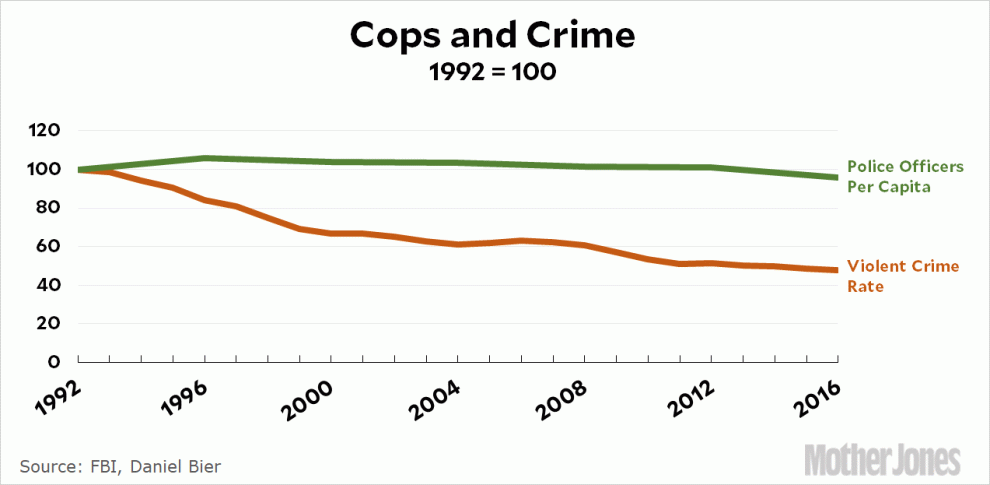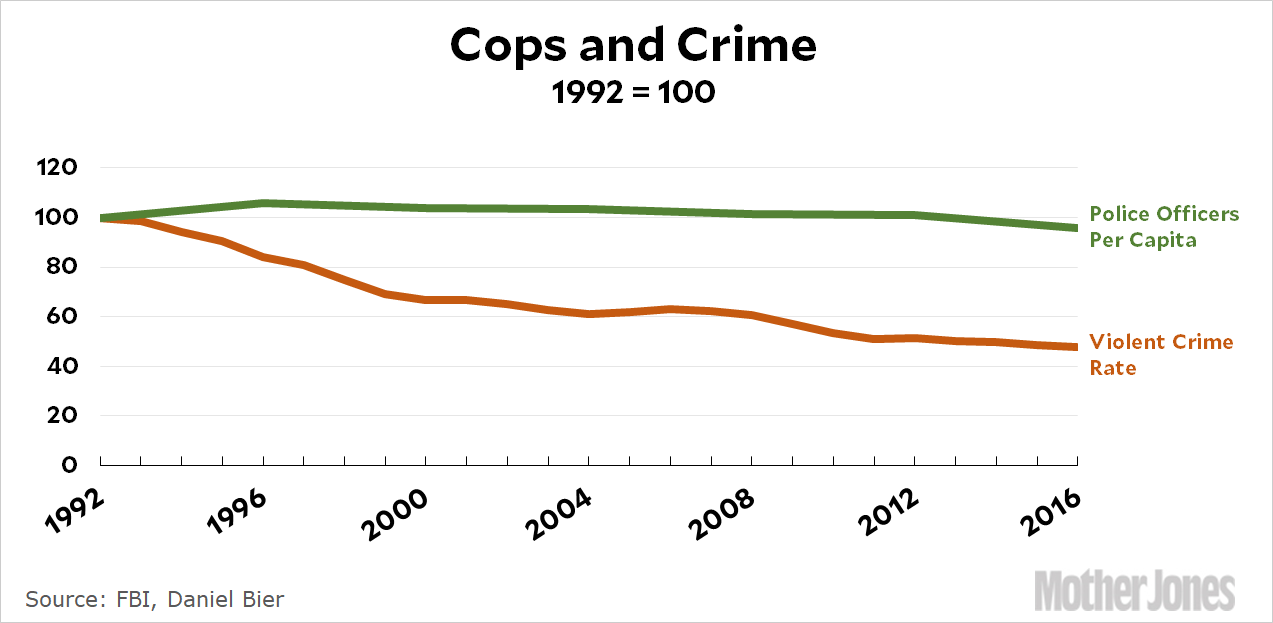
I don’t have a lot to say about this, but in the midst of the campaign to defund the police¹ I got curious about the number of police officers nationwide during the past three decades of declining crime rates. This turns out to be sort of tricky, but Daniel Bier (here and here) has done a pretty good job of estimating the number of local police officers nationally:

The violent crime rate has fallen by half since its peak in 1992, but the number of police officers per capita has stayed nearly flat. This divergence is even more dramatic in places like Los Angeles and New York City, where the crime rate has fallen by about 75 percent since 1992.
As I said, I don’t have any big point to make. I was just curious to see if we had taken advantage of the lead-driven decline in crime to save money on policing. Apparently not.
¹A bit of a misnomer. With a few exceptions, most of the proponents of defunding the police only want to cut police funding, not eliminate it.















